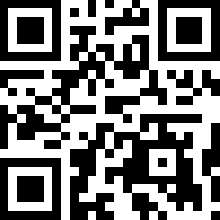- High School
- Class Homepages
AP English Literature and Composition
-
 Welcome to my AP English Literature and Composition home page! Students looking for course resources, such as assignments and readings, should go to the resources page now. Students looking for homework assignments and due dates should check the class's homework page.
Welcome to my AP English Literature and Composition home page! Students looking for course resources, such as assignments and readings, should go to the resources page now. Students looking for homework assignments and due dates should check the class's homework page.Junior year is an extremely important year in your high school career. It is the final full year of coursework colleges will see when you apply, so it is important that you work hard to maintain good grades, get involved in your school community, and begin taking some important steps towards the college admissions process. You should register for the SATs or ACTs early this year. Your SAT score that is sent to your colleges is a composite score, meaning that the top three individual scores will be added together for your total score, so taking it multiple times is to your advantage!
This course is very intensive (as you can see in the course description below), but will prepare you for the rigors of collegiate writing and reading. If you are having any trouble in the course, or just have questions about college and the admissions process, be sure to contact me at a.zisa@hackensackschools.org or see me before school in room 363 (the television studio control room) or after school in room 268. Together, we will resolve any concerns you have and prepare you for senior year and beyond!
 I highly encourage you to sign up for my Remind101 text service so I can keep you updated on any changes in assignments, deadlines, etc. immediately. The service is free, and you can receive either text messages or email alerts. To sign up via text message, you can just text the message "@zisaaplit" (without the quotation marks) to (843) 588-5572. Alternatively, you can scan the QR code to the right. To unsubscribe from text alerts, just reply "unsubscribe @zisaaplit" (again, without quotations). If you would like to sign up via email, you can send a blank email to zisaaplit@mail.remind101.com. To unsubscribe, just reply to the emails with the subject line "unsubscribe". The volume of messages is light and reasonable.
I highly encourage you to sign up for my Remind101 text service so I can keep you updated on any changes in assignments, deadlines, etc. immediately. The service is free, and you can receive either text messages or email alerts. To sign up via text message, you can just text the message "@zisaaplit" (without the quotation marks) to (843) 588-5572. Alternatively, you can scan the QR code to the right. To unsubscribe from text alerts, just reply "unsubscribe @zisaaplit" (again, without quotations). If you would like to sign up via email, you can send a blank email to zisaaplit@mail.remind101.com. To unsubscribe, just reply to the emails with the subject line "unsubscribe". The volume of messages is light and reasonable.
The College Board's description of the course:AP English Literature and Composition Course Description
An AP English Literature and Composition course engages students in the careful reading and critical analysis of imaginative literature. Through the close reading of selected texts, students deepen their understanding of the ways writers use language to provide both meaning and pleasure for their readers. As they read, students consider a work’s structure, style and themes, as well as such smaller-scale elements as the use of figurative language, imagery, symbolism and tone.
AP English Literature and Composition students are expected to adhere to Hackensack High School's academic integrity policy, reprinted below. All drafted assignments will be submitted to Turnitin.com. Academic dishonesty will result in the student receiving a zero for the assignment and disciplinary measures being taken. Repeated academic dishonesty will result in the student being asked to leave the course.
Hackensack High School Academic Integrity Policy
Academic integrity is an essential element to Hackensack High School’s philosophy and practice of promoting academic excellence. For an academic institution to be successful, an honor code and consequences for violating the honor code must be established. Indeed, once the student is in a university, college, or workplace, any form of dishonesty will result in serious penalties, including automatic course failure and expulsion, losing your job, etc. The danger of plagiarism is not only the embarrassment and punishment that result from being discovered, but the self-delusion of having accomplished something. Cheating, dishonesty, and plagiarism will not be tolerated in Hackensack High School.
Cheating includes, but is not limited to, the following examples:
- Taking, stealing, and/or using an assignment from someone else and submitting it as one’ s own.
- Allowing another to take and/or use an assignment to submit as his/her own.
- Looking at another’s test or essay with or without his consent for the purpose of duplicating that work and submitting it as one’s own.
- Representing as one’s own the work or words of a parent, sibling, friend, or anyone else.
- Discussing or revealing the contents of a test or quiz with students who have not completed the assessment.
- Unauthorized use of teacher test materials, answer sheets, computer files, or grading programs.
- Using any type of “crib/cliff notes” on your person, an object, or programmed within graphing calculators, palm pilots, cell phones, or other electronic devices without teacher permission.
- Receiving answers for assignments or exams from any unauthorized source.
- Working on assignments with others when not authorized by the instructor.
- Copying from other students during an exam.
- Giving answers to another student for an assignment or exam.
Dishonesty includes, but is not limited to, the following examples:
- Agreeing with other students to commit academic dishonesty.
- Falsification of results from research or laboratory experiments.
- Written or oral presentation of results from which research was never performed.

